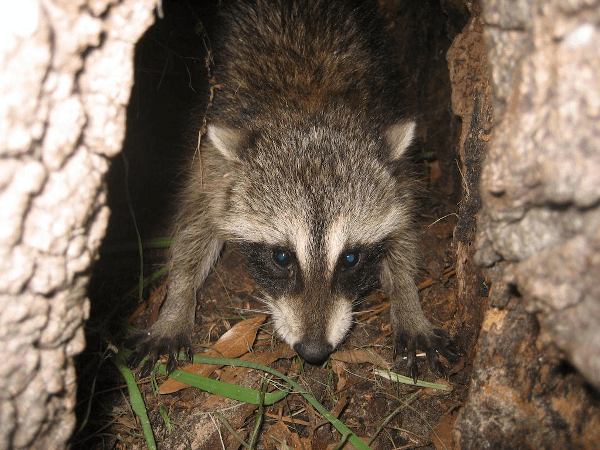How to Keep Raccoons Off Your Property
As cute as raccoons may look, they can cause a lot of trouble if they find their way into your yard or house. These animals are considered pests because their presence often leads to property damage and health risks to the house inhabitants. Raccoons can not only destroy your backyard but very often they find their way inside of your house and cause a lot of damage in your attic or basement. Moreover, raccoon excrements carry the risk of various diseases that can be spread to people and pets. If you know that there is an existing raccoon problem in your area, you may want to consider taking the next steps to prevent these wild animals from moving near your property.

Eliminate food sources
This is a crucial step in dealing with any wildlife animal. Many people leave leftover food on their porches, garden tables, or near the BBQ area. Very often food is being thrown onto the ground as a treat for our pets, but we need to remember that what cats and dogs will eat, raccoons will feast on as well. Raccoons come near your property not only looking for shelter but also looking for food and water supplies. If they can't find those, they are less likely to stay - hence why getting rid of food leftovers or your pet food is so important.
Clean the garbage can area
Trash cans are a treat for raccoons. Their smell reminds raccoons of burrows filled with food and there is no way these animals can resist that. Your first step should be getting a garbage can with a locking lid, which will prevent the raccoons from getting inside of the can. However, the smell coming out of the waste can still be quite tempting to the wild animals. If possible, you should consider bringing your trash cans inside for the night, either into a garage or special shed.
Keep your garden nice & clean

Raccoons often look for food in gardens, compost piles, or fish ponds. To avoid that, you should consider putting fences around those areas - and ideally choose electric ones, as these wild animals are smart enough to dig under normal fences, climb over, or find some other way through them.
Raccoons often look for food in gardens, compost piles, or fish ponds. To avoid that, you should consider putting fences around those areas - and ideally choose electric ones, as these wild animals are smart enough to dig under normal fences, climb over, or find some other way through them.
While working on your backyard, you may also seal off any entry points in your house - as a precaution. This way you will make sure that raccoons don't find a way inside your home.
When the raccoons decide to move in...
If the previous tips didn't help and the raccoons decided to make a longer stop near your property, you may consider raccoon trapping or calling local wildlife services (there is more information on raccoon trapping here). In such situations, it is best to act quickly and solve the problem as soon as possible. Click here for more information on how to deal with raccoons.